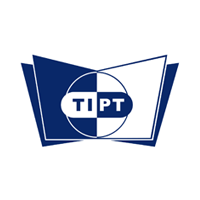
Human error is an unfortunate reality of many aspects of life, including the pharmaceutical industry. Mistakes made during pharmaceutical manufacturing and development often prove to be costly as well as unnecessary, causing batch recalls and potentially affecting the health of the general public.
Read on to learn more about how to prevent making avoidable mistakes in pharmaceutical product quality.
Pharma Pros Should Be Present, Focused, and Establish a Reliable Routine
One of the easiest methods to use to prevent the most common mistakes is to be present when assessing the quality of a product. Subjective risk-influencing factors (RIFs) such as workplace distractions and individual stressors can all contribute to poor quality, and the best solution is often to identify the specific issue influencing the lack of quality.

Prioritize the Good Manufacturing Practices Learned in Quality Assurance Training
When it comes to keeping focused and attentive, it helps to draw upon your quality assurance training. Adhering to technical lessons as well as compliance to Good Manufacturing Practices (GMP) can help many pharmaceutical workers ensure the best possible quality and avoid unnecessary miscalculations or errors.
By employing GMP in a professional manner, the foundation of prioritizing quality over quantity can be maintained with care and efficiency. Additionally, this also encourages the quality assessor to proceed with a careful attention to detail, which will benefit their work as well as help guarantee that the final product meets quality and regulation standards.
Utilize Skills Learned in Your Pharmaceutical Program
A good quality assurance diploma helps students to develop a number of soft skills which are useful in assessing the manufacture of pharmaceutical products. Not only do these skills make the job easier, but they are also are a better guarantor of success at preventing human error.

Quality assurance also involves communication and management skills. Communication is vital in the workplace as it helps identify and solve problems among the team, and prevent misunderstandings occurring throughout the process. Being able to clearly address an issue and offer viable solutions can prevent a wide array of errors. Additionally, good management skills means the quality assessor has the ability to both multi-task and keep adherence to responsibilities, ensuring that the final product is untainted and safe for consumption.
Interested in enrolling in an accredited pharmaceutical program?
Contact the Toronto Institute of Pharmaceutical Technology (TIPT) for more information!
